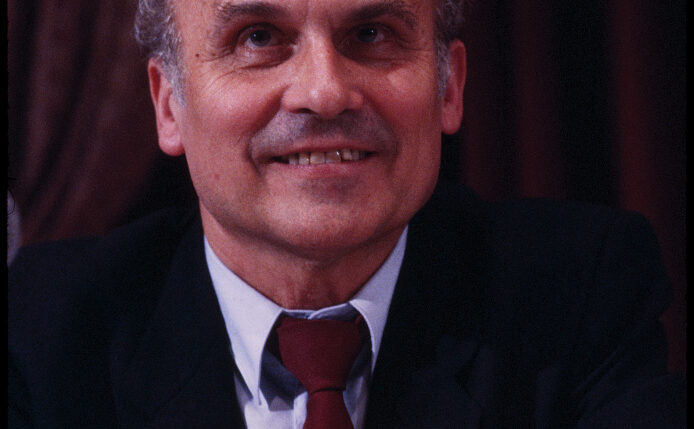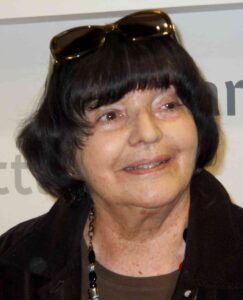
Details, emotions, and the multidimensional world of Polish literary journalism
Before deep diving into the universe of Polish literary journalism, stop for a moment and ask yourself a question: What first comes to mind when you think about Polish literary journalism? How does it look? How does it sound? Or maybe, how does it feel?
Today I would like to invite you to the magical and poetic world of literary journalism by one of the greatest Polish authors.
I am sure that we could not imagine Polish literary journalism without the works of Ryszard Kapuściński, Poland’s best-known journalist and writer. Polish literature as well as Polish journalism would not have been the same without such great books as Kapuściński’s Heban (The Shadow of the Sun), where he writes about African matters. Moreover, in Imperium (Empire), he showed the diversity and beauty of the former republics of the USSR.
As a journalist, Kapuściński witnessed some of the most important historical events of the post-WWII decades. He was the Polish Press Agency’s only correspondent in Africa who did write about decolonization and its impact on African society. During this time, he published Czarne gwiazdy and Gdyby cała Afryka. Working as PPA’s correspondent gave him an opportunity to travel to some of the USSR’s republics and South America, where he witnessed riots and political changes. After his journey around Brazil, Chile, and Mexico he released Wojna futbolowa (The Soccer War) and Chrystus z karabinem na ramieniu.
Kapuściński’s journalistic style was unique. Narratively, he used metaphor and other stylistic devices to better represent the world around him. The psychological portraits he created of his characters brought them closer to his readers, conveying entire social outlooks in the smallest of details. In Cesarz (The Emperor; Shah of Shahs) for example, he combined his literary and journalistic talents to create a figurative portrait of a totalitarian regime. Above all, Kapuściński’s entire body of work certainly provokes discussion and helps in a better understanding of literary journalism.
As time goes by, more inspiring and interesting writers had a great impact on creating literary journalism in Poland. One of the most important authors who changed the way of creating literary narration is Hanna Krall, a Polish-Jewish writer, and journalist, who has also had a great influence on the younger generation of journalists such as Mariusz Szczygieł and Wojciech Tochman. The main characters in Krall’s storytelling represent the details contained within her books; they also express the type and form of her writing style which plays a key role in her stories.
Her most famous book Zdążyć przed Panem Bogiem (Shielding the Flame) is based on an interview with Marek Edelman where he talks about fighting in the Warsaw Ghetto Uprising, and his work as a cardiologist. As a Holocaust survivor, writing about the Jewish community in Poland was difficult for her at the beginning. However, she started discovering the Jewish culture of Poland and published Opowieści Chasydów where she illustrated life in post-Jewish cities in Poland.
Hanna Krall has a unique way of describing the world surrounding her. She also wrote Dowody na istnienie which poet Ryszard Krynicki has described as a work of metaphysical reportage because of the way it deals with large questions of the nature of reality and existence.
Mariusz Szczygieł’s literary journalism is deeply inspired by Krall’s work. His writings on the history and culture of the Czech Republic, the most famous of which, Gottland, contains non-fiction accounts of the Czech Republic in the Soviet era. As this country is a big interest for him, Szczygieł also described forms of atheism and spirituality among the Czechs in the book Zrób sobie raj (Make Your Own Paradise). Moreover, in his literary journalism Szczygieł focuses on the meaning of human life and its unique nature, which he usually refers to as “our own truth”. These topics shape his books Projekt: prawda (Project: Truth) and Nie ma (Not There).
In 2021 he published Fakty muszą zatańczyć (Facts must dance), a book created “out of love for literary journalism”. This collection of essays is a beautiful journey for everyone interested in non-fiction stories and for the ones who want to start creating their own.
Hanna Krall also significantly influenced Wojciech Tochman’s language and view of journalism and literature. His books are full of emotion. Due to his storytelling and attention to detail in the book Jakbyś kamień jadła (Like eating a stone), he was able to portray women who survived the Yugoslav Wars. Tochman’s narrative is focused on the stories of individuals. He uses the same form in the book Eli Eli which he created with a photo reporter, Grzegorz Wełnicki. Eli Eli provides an unusual illustration of living in the Filipino slums and in it, Tochman is critical of the profit-driven tourism in Manila. His intent was to give his characters a voice so that they could lead him through their lives themselves.
Another book that is worth mentioning is Dzisiaj narysujemy śmierć (Today we will draw death), where Tochman described reality after the Rwandan genocide in 1994. This story is something that cannot be overlooked when discovering his literary journalism.
It is very challenging to sum up every aspect of Polish literary journalism in just a few words; however, I do believe that every author to whom I have introduced you, is a source of great inspiration, and could help you with understanding the different forms of narration in non-fiction stories.
